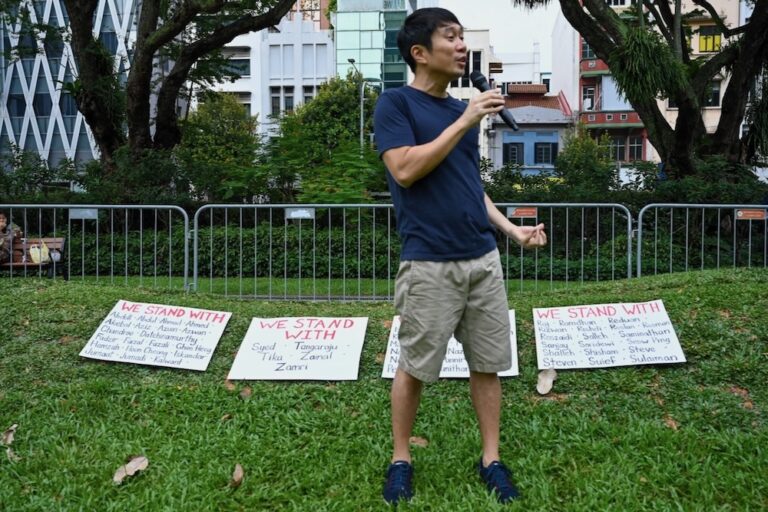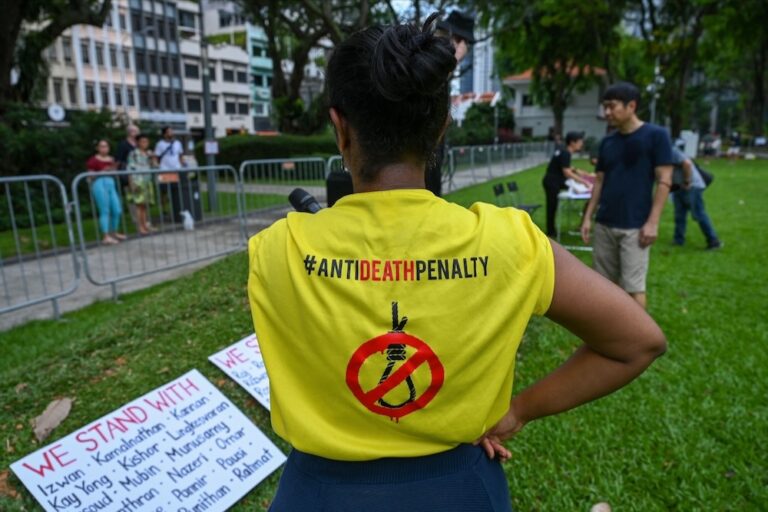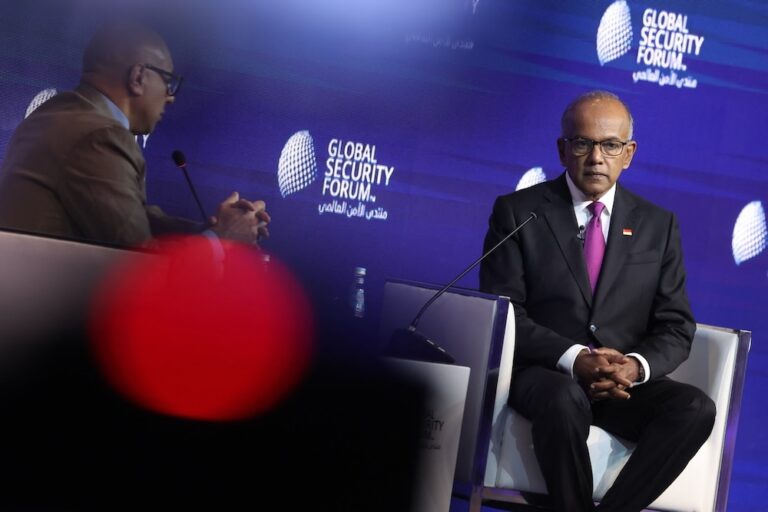(SEAPA/IFEX) – On October 11 2005, the outgoing U.S. ambassador to Singapore criticized the city-state’s suppression of political expression and suggested that its repression of dissent and criticism is incongruent with its aspirations in a century driven by access to information. “In this era of weblogs and webcams, how much sense does it make to […]
(SEAPA/IFEX) – On October 11 2005, the outgoing U.S. ambassador to Singapore criticized the city-state’s suppression of political expression and suggested that its repression of dissent and criticism is incongruent with its aspirations in a century driven by access to information.
“In this era of weblogs and webcams, how much sense does it make to limit political expression?” U.S. Ambassador Franklin L. Lavin was quoted by Reuters news agency as asking an audience at his farewell dinner. The speech was made available on the U.S. embassy’s website.
Despite its robust economic development, Singapore has one of the most repressive regimes against free speech in Southeast Asia. The state controls all mainstream print and broadcast media, and its Films Act bans any work that is deemed to be political in any way. Meanwhile, Singapore’s government is keeping a close eye on the Internet, where a handful of independent websites and weblogs have been trying to provide alternative news and commentary for Singaporeans.
In August, police ordered a 36-year-old filmmaker to surrender equipment used to make a documentary on opposition figure Chee Soon Juan (see IFEX alerts of 26 September, 31 August, 11 May and 23 March 2005). Chee himself has been sued for defamation for speeches he made while running for a parliamentary seat. He is now facing bankruptcy proceedings. Singapore is notorious for using the threat of defamation – and bankruptcy – to intimidate would-be critics of its politics, policies, and practices.
A student on a state scholarship shut down his personal website in May after a government agency threatened a libel suit for his online comments (see alerts of 6 and 2 May 2005). On Friday, Singapore jailed two men for posting racist comments aimed at the country’s ethnic Malay community, who are mainly Muslim, on the Internet.
“Singapore has flourished over the past 40 years, but is a 20th century model adequate for the 21st century?” Lavin asked. “Remaking [Singapore’s] economy is, in a sense, the easy decision. Shaping a political system to reflect the needs and aspirations of its citizens is more difficult and more sensitive,” he added.
Singapore Prime Minister Lee Hsien Loong had promised to relax state control of the media, but last week suggested that a Western liberal democracy with a multi-party system remains unsuitable for the country. Singapore has been dominated by the People’s Action Party (PAP) since its independence in 1965.


